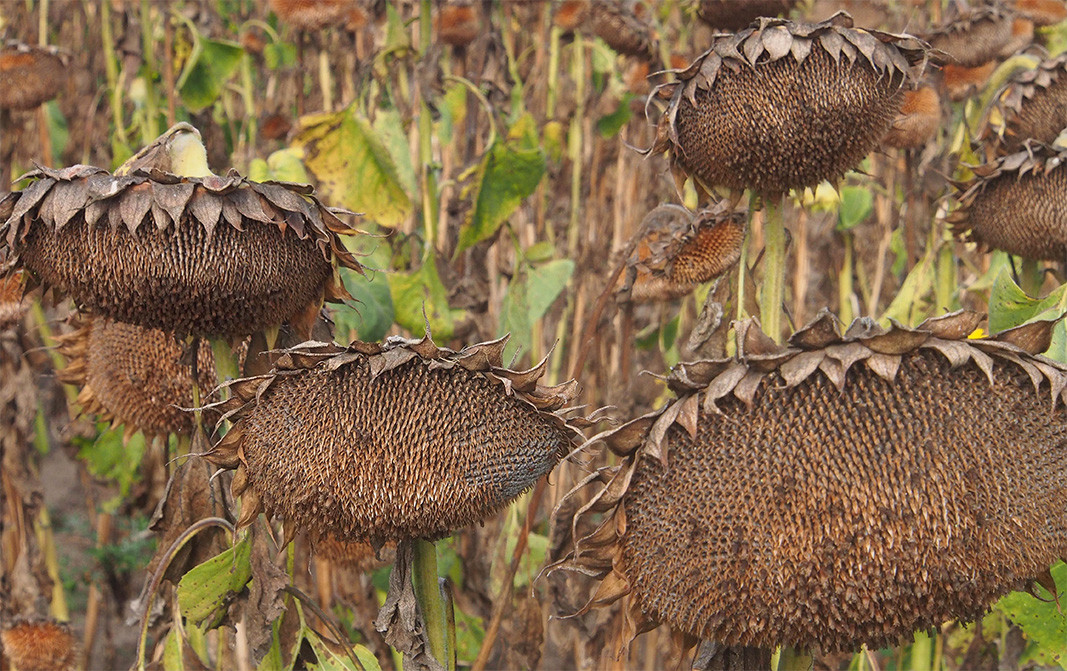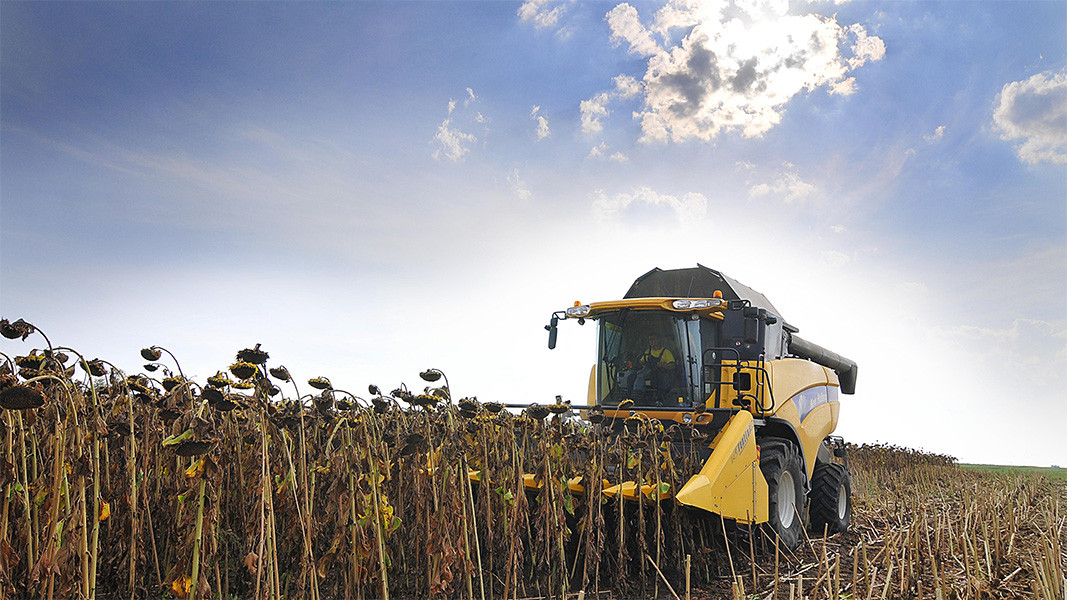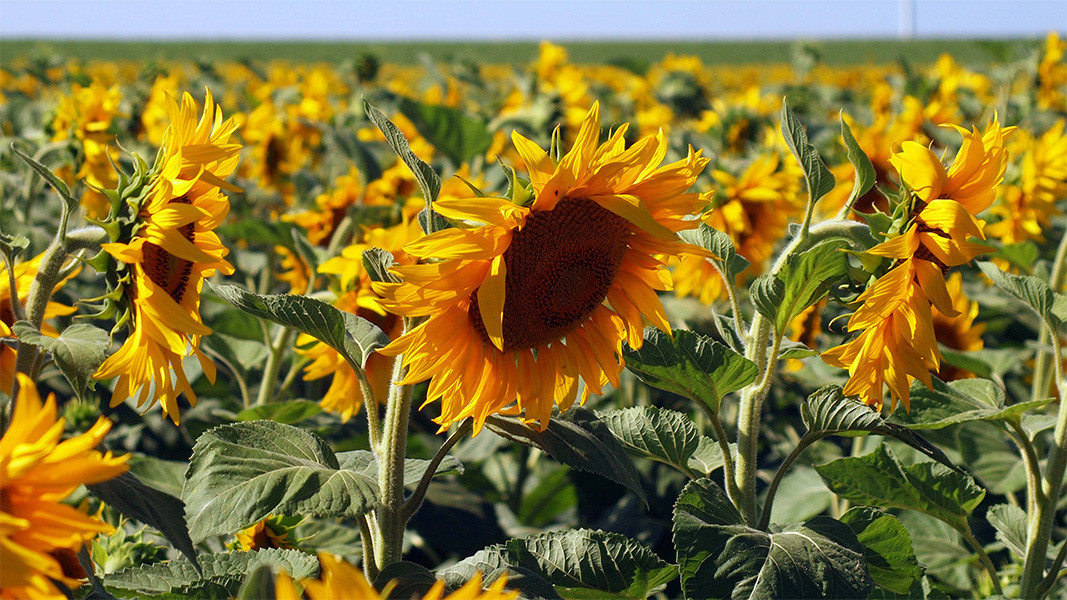Bulgaria, alongside another four European countries – Poland, Hungary, Romania and Slovakia – are seeking an extension of the ban on imports of Ukrainian products until the end of the year. The five countries want flexibility of the list of products banned for import. Bulgaria’s focus is on three specific products – sunflower, unrefined oil and powdered milk.
According to Eurostat data, Bulgaria is leader in sunflower seed production for the EU in 2022. During 2022, Bulgaria produced 2.117 million tons of this raw material, or 23% of the EU’s entire production. The other two countries in the top three of sunflower producers are Romania and France.
That said, the Oilseed Oil Producers Association in Bulgaria has been calling for urgent measures in to provide Bulgaria’s oil processing industry access to this raw material, including for lifting the ban on imports. In a letter to the prime minister they say that Bulgaria “is experiencing and will continue to experience a systemic shortage of Bulgarian oilseed crops due to the constant increase in the processing capacity in the country (at this time 3.5 million tons a year for oil production and 1 million tons for the production of peeled sunflower seeds).” They say the sunflower has been withheld speculatively by Bulgarian producers, and that this has led to a slowdown or stoppage of the entire processing industry due to lack of raw material. 
Bulgarian farmers are coming under enormous pressure from a series of challenges, says on his part Iliyan Prodanov, chairman of the National Grain Producers’ Association. The high cost price of the production and the low purchase price on the one hand, and the unfavourable weather conditions on the other, have led to a shrinkage of the yields, he says. That is why he is adamant that “putting an end to the ban on the import of four farming products – wheat, maize, rapeseed and sunflower seed – from Ukraine is unacceptable”.
The tension between sunflower producers and sunflower processors flared up last year, when the import of Ukrainian grain started to undercut local production prices. As a result, more than 600,000 tons of Bulgarian sunflower from last year’s harvest remain unsold and are still filling grain producers’ warehouses, even though Brussels gave Bulgaria permission to ban the import of sunflower from Ukraine on 15 September last year. However, the ban is damaging the interests of sunflower processors who stated they would be forced to close their capacities due to raw material shortages.
However, according to Yani Yanev, chairman of the Oilseed Oil Producers Association in Bulgaria, the problem here is different:
“There is enough sunflower, the problem at the moment are the prices offered on the market, which are lower than the cost price of the sunflower produced, as we have been informed by farmers. They are waiting for a better price – and they have every right to be doing that”.
For the industry to survive it needs to take into account what is happening in the world, he says:
“The prices on the external markets strongly affect the prices of sunflower and sunflower oil in this country. Out of the approximately 2 million tons of sunflower produced in this country, domestic market consumption stands at approximately 250,000 tons, everything else is for export.”
As regards the origin of the sunflower and the cost of its processing, Yanev is adamant:
“We are relying mostly on Bulgarian sunflower and are offering prices at which we can process this raw material and export products. At the moment, the prices that can be offered on the Bulgarian market are approximately 770 Leva (a little under EUR 394) +/- 10% per ton. Things are very dynamic.”
“We all need to adapt to the market,” says grain producer Angel Vukadinov, and goes on to describe the overall picture in the sector connected with the processing of oils:
“It is highly monopolized and the big structures are trying to pull the strings on the market. It consists of several processing companies that have a huge turnover,” says Angel Vukodinov and adds:
“I tried to check what the turnover of two of them is – they occupy the top two positions, or maybe just a little lower. The turnover of one of the companies has gone up from 400 million Leva (EUR 204 million) to 1.5 billion Leva (EUR 770 million) in 4 years, and of the other – from more than 300 million Leva (EUR 153 million) to over 600 million Leva (EUR 306 million). In other words, they have a bigger turnover than the value of the sunflower produced.”
Grain producers are hoping the grain ban on imports from Ukraine will be continued after 15 September, because they say that if another 200-300 or 500 tons of Ukrainian grain (wheat, maize, rapeseed and sunflower seed) come into the country, the market, which is now equable, will crash by 30-40%.
Interviews by Veselina Milanova, Horizont channel, BNR
Text: Yoan Kolev
Translated and posted by Milena Daynova
Photos: BTA, BGNES
Since the beginning of the current year, Bulgaria has experienced record heat waves, a series of devastating fires, and a new disaster just days ago – catastrophic floods that claimed human lives . Climate change already has its price – and it is..
Bulgaria will receive EUR 7.4 million in aid from the European Commission to support farmers affected by adverse production conditions in recent months, European Commissioner for Agriculture and Food Christophe Hansen told BTA and clarified that the..
In its "Economic Freedom of the World, 2025" ranking , the Canadian Fraser Institute gives Bulgaria a score of 7.13 out of a maximum of 10 points. This places the country 56th out of 165. It ranks between Greece and Thailand. In 2024, Bulgaria was 52nd..
The annual growth of Bulgaria's gross domestic product will remain above 3% in the period 2025-2027 , according to a report by commercial credit insurer..

+359 2 9336 661
